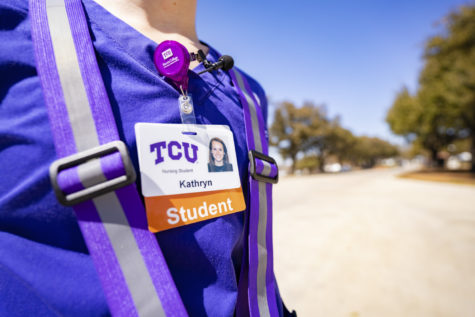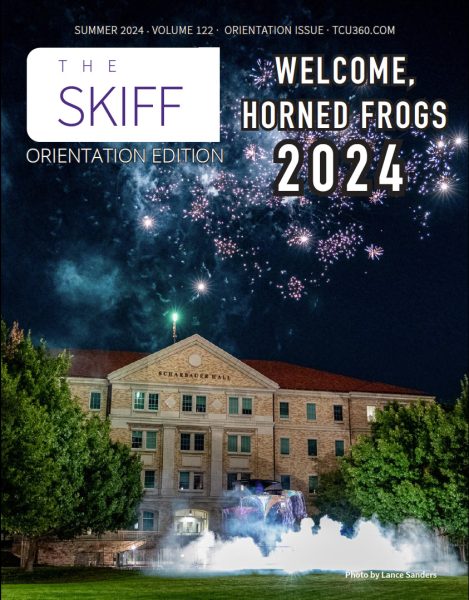Community belonging
The importance of finding a place in college

The foundation behind belonging
There are thousands of colleges in the United States that students can choose from to further their education. For some students, their search depends on distinct programs, campus location or university statistics. While the concept of the “ideal college” is unique for every individual, belonging is one common denominator that most students desire.
Ensuring that one bonds with the community is important, said Kathy Cavins-Tull, vice chancellor for student affairs.
Finding connection at TCU begins before students come to school, said Cavins-Tull. From normal orientation to Frog Camp, which is an optional "extended-orientation program," these events provide a sense of community before moving in, Cavins-Tull added.
“You start to learn what does TCU really value, what’s important to TCU because it shows in the behavior of our orientation leaders,” she said.
Cavins-Tull also noted that the residential program is another area where students can find help and form relationships.
“We use this model as an RA (resident assistant), KCE - knowing a student, connecting them and empowering them to make a difference,” said Cavins-Tull.
The student affairs’ thrive model also focuses on helping students spread their wings. This model is represented through a plant that describes the characteristics necessary to thrive.
“The stem of that plant is the ability to belong to something and to matter to people,” said Cavins-Tull.
Annually, the university receives more than 450 transfer students. There is a transfer coordinator who has developed peer leaders, she said. These leaders help facilitate connection for transfers, said Cavins-Tull.
“Our transfer students are a lot more diverse in terms of their experiences than our first-year students are, but they can teach each other and help each other and all of that,” said Cavins-Tull.
For all students, the office of admissions works to foster belonging before students comes to the university or enroll, said Heath Einstein, dean of admissions.
Admissions mostly uses the “same language” when recruiting transfers and first-years, Einstein said.
“The messaging we deliver typically ties to themes that appeal to a wide swath of students, language around bold leadership, a supportive environment and a spirited campus,” said Einstein.
Belonging is essential for student identity, Einstein said. Though there might be multiple explanations for what could lead one to transfer or drop out, lacking a form of connection links to many of the reasons, he said.
Cavins-Tull used an analogy known as “third spaces” to describe TCU.
“Our home is our first place and usually our place of employment, as an adult, is your second place, but that third place you have choice over,” said Cavins-Tull.
TCU is in ways students' third and first place because they reside on campus, but also make decisions about what they are going to do during their time at the university, said Cavins-Tull.
“We want you to be involved and committed and make a difference on this campus,” she said.
Cavins-Tull added that for each incoming class, there are revisions and continued practices that develop the TCU culture.
“There is this culture that we work to build and rebuild and rebuild and recreate with every class of students,” said Cavins-Tull.

TCU's Housing & Residence Life is responsible for leading and training dorm resident assistants (RA's). (Grace Reinhardt/TCU 360)
TCU's Housing & Residence Life is responsible for leading and training dorm resident assistants (RA's). (Grace Reinhardt/TCU 360)
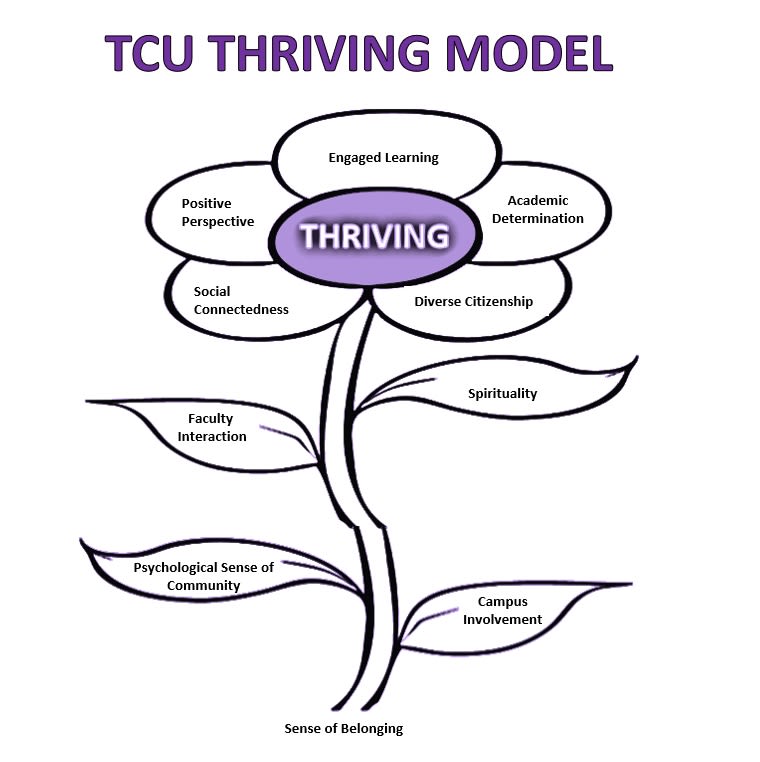
Student affairs' thrive model, which is depicted as a plant. (Graphic courtesy of Laurie Schreiner)
Student affairs' thrive model, which is depicted as a plant. (Graphic courtesy of Laurie Schreiner)
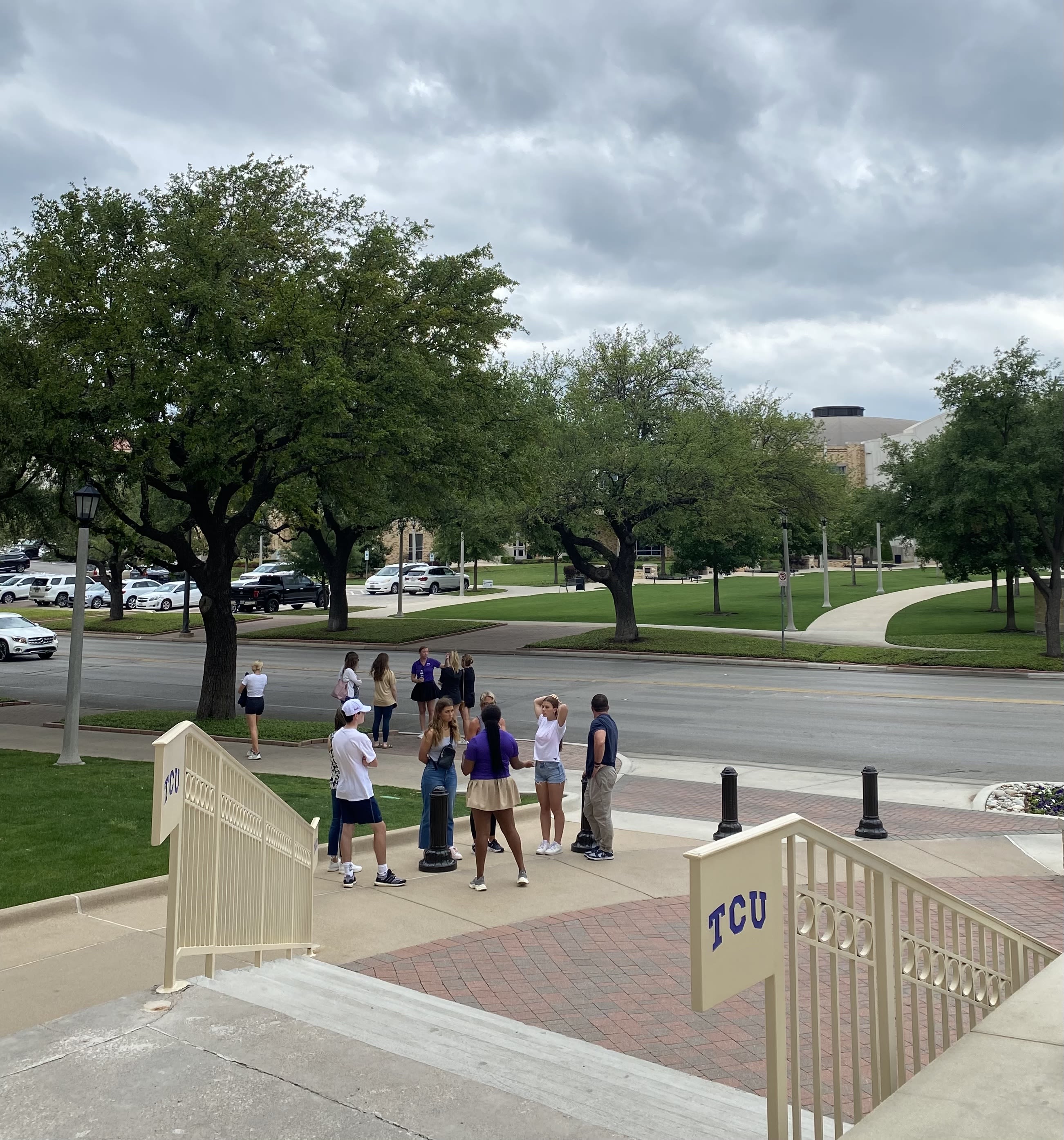
Prospective students touring campus. (Grace Reinhardt/TCU 360)
Prospective students touring campus. (Grace Reinhardt/TCU 360)
The power of Frog Camp
Incoming students are given the option to participate in Frog Camp, an "extended-orientation program" during the summer.
In addition to normal orientation, camp provides an opportunity for new students to further social connections, while also learning about the meaning behind being a Horned Frog, said Cedric Garron, director of Frog Camp.
“We want you to build community while you’re there…,” said Garron.
He said that camp is a place where individuals can be reaffirmed in their college decision since the goal is for them to find meaning within TCU. It is a place where new students are introduced to older students, faculty and staff, and first-years.
“For a lot of students I think it’s the first time that they feel like they feel that sense of belonging,” said Garron.
Students learn about a variety of elements at camp, such as how to transition into a new environment, said Cavins-Tull.
“You learn about all the things that we want you to learn about in terms of being open to new people and not making judgements before you know somebody...,” said Cavins-Tull.
Garron added that Frog camp is a part of the first-year experience, which means that it is open to all new students.
“We want to make sure that our transfer students feel just as welcomed and just as appreciated and valued as our first-year students,” said Garron.
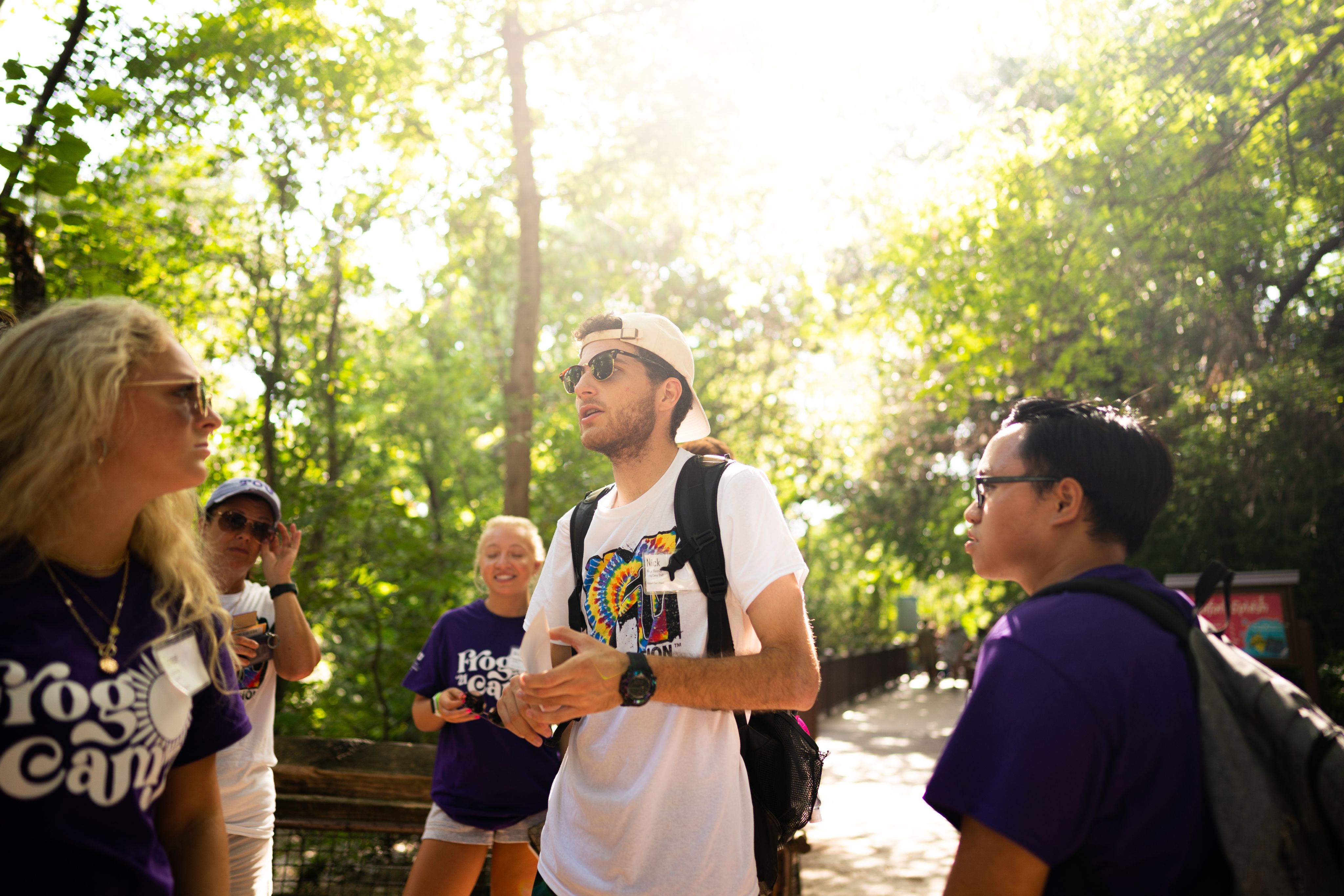
Facilitators are responsible for co-leading their small group. (Photo courtesy of Ethan Mito)
Facilitators are responsible for co-leading their small group. (Photo courtesy of Ethan Mito)

Frog campers work together during group activities. (Photo courtesy of Ethan Mito)
Frog campers work together during group activities. (Photo courtesy of Ethan Mito)
When transfer students come to camp, they are mixed in with everyone else with the intention that they feel like all Horned Frogs, he said.
“If you’re a transfer student and you’ve already gone through this at one school that you didn’t find a connection to, we don’t want that to be the thing at TCU…,” said Garron.
Facilitators play one of the largest roles at camp. These individuals are current students who apply and volunteer a portion of their summer to co-leading a small group within camp. Garron and the director board help build the machine, but the facilitators are responsible for working it, Garron said.
“The facilitators are the ones facilitating the conversations,” said Garron. “Y’all are the ones having the informal and formal conversations with students.”
There has been an increase in students wanting to be facilitators, said Garron. It is predicted that this past year camp received "the highest number of applications" that has been seen in a while, according to Garron.
“It kind of blows my mind sometimes to see just how many current TCU students are wanting to be Frog Camp facilitators,” Garron said. “It warms my heart to know that so many of you all want to create that space for incoming students.”
For individuals who could be questioning their belonging, Garron encourages students to “keep pushing.”
“Jump in and that’s what we tell people at Frog Camp too,” said Garron. “You are going to get out of the experience what you put into it.”
Utilize resources
Feeling a sense of belonging in college is crucial because being comfortable can initiate growth, said TCU’s chancellor of 19 years, Victor Boschini.
“I could show you probably 40 studies that say if you don’t feel comfortable in your environment, you don’t do as well,” said Boschini.
Speaking during his biannual town hall, Boschini said that when individuals lack belonging it can affect self-care practices.
“In other words, you’re not going to study as well, you’re not going to eat as well, you’re not going to have health as well,” said Boschini.
He said it’s important to ensure that transfer students feel included since they are coming into an atmosphere where many people might already have friends or a social group.
“I think TCU is such an interconnected place,” said Boschini. “It’s such a hard place to break into.”
Student affairs has intensified elements aimed towards helping transfer students, said Boschini.
Since belonging can impact well-being, it is vital to pay attention to personal mental health. For students who might be struggling, speaking with friends and the counseling and mental health center can be valuable since many want to help, said Boschini.
“Reach out,” said Boschini. “Do not suffer in silence.”
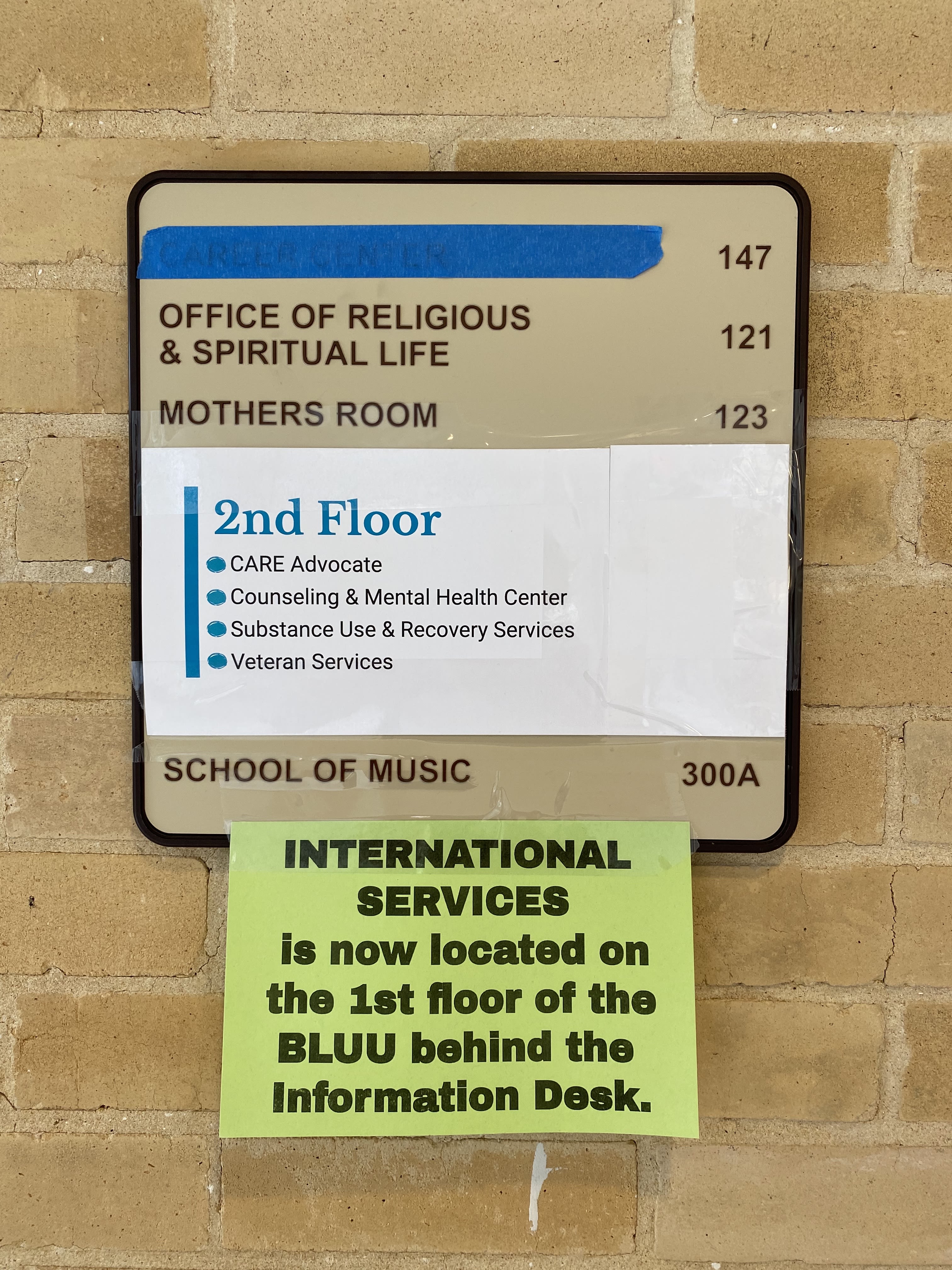
The TCU Counseling and Mental Health Center is located on the second floor of Jarvis Hall. (Grace Reinhardt/TCU 360)
The TCU Counseling and Mental Health Center is located on the second floor of Jarvis Hall. (Grace Reinhardt/TCU 360)
There are a variety of peer support communities available for students, said Eric Wood, director of the counseling and mental health center.
“We went from four to over twenty during covid,” said Wood.
He added that the communities are student led and for meetings, staff support is present. Though the communities might have a certain name, such as Renew- Depression and Anxiety Support Community, students can discuss anything.
“They may not talk about depression and anxiety,” said Wood. “They can be talking about studying for finals or whatever, just whatever the student leading that meeting wants to talk about.”
Lacking connection could lead to issues like anxiety, depression, questioning purpose and identity and additional obstacles, said Wood.
“We are social beings,” said Wood. “If we feel like we’re not connected or don't belong, that is going to bring us so many other issues.”
Utilize the Campus Recreation and Wellness Promotion Center and go outside, said Boschini. He added that the Campus Commons is another outdoor resource. The furniture offers a place where people can come together and relax.

The furniture in the Campus Commons is an area where students can relax. (Grace Reinhardt/TCU 360)
The furniture in the Campus Commons is an area where students can relax. (Grace Reinhardt/TCU 360)
“Whenever I walk through the Campus Commons I try to walk through there and just kid around with kids,” said Boschini. “It makes you happy to see people happy.”
Additionally, Boschini added that taking naps is a good way to take a break. By doing this, your heart rate can rest, he said.
“I would take a nap everyday if I was permitted,” said Boschini.






